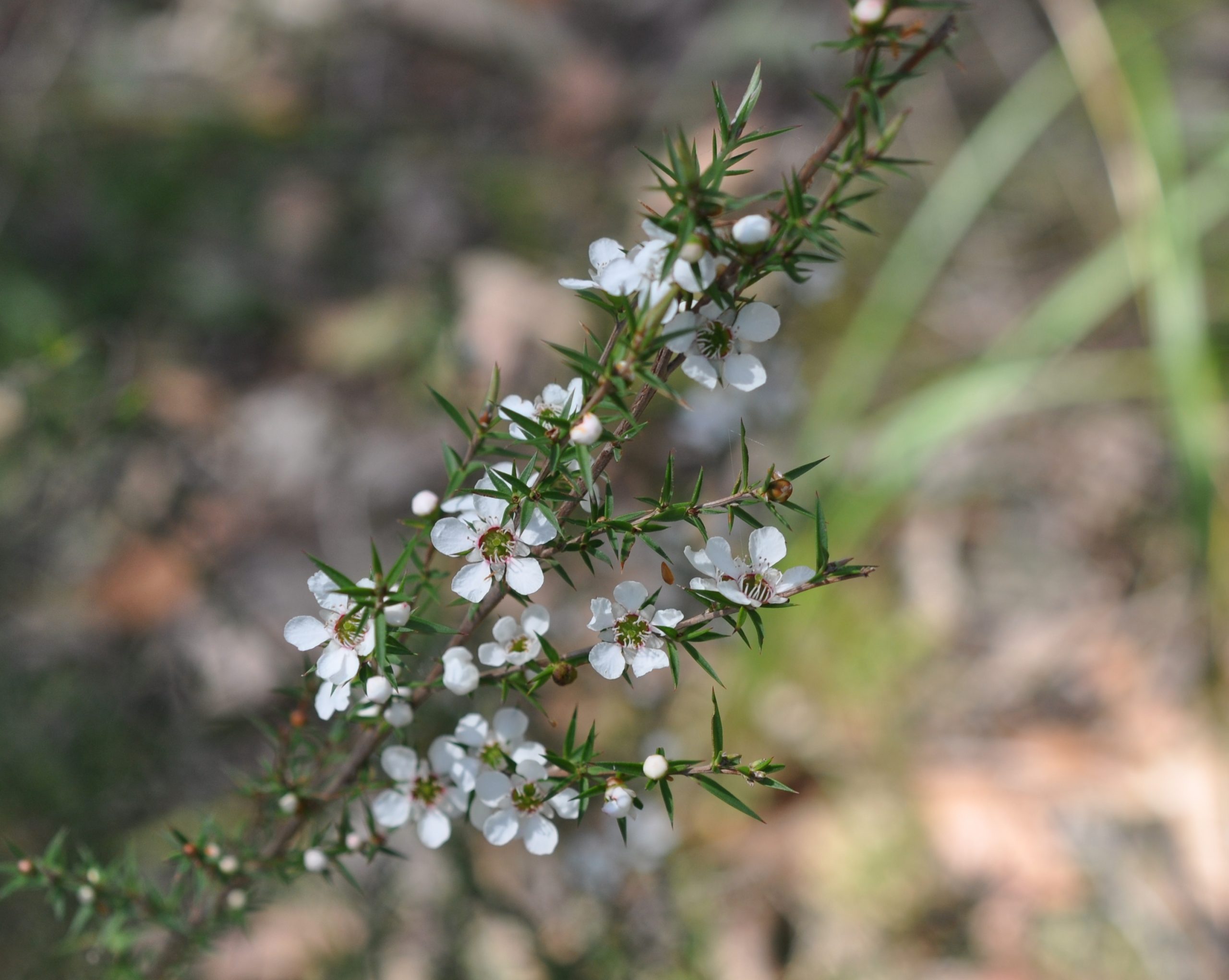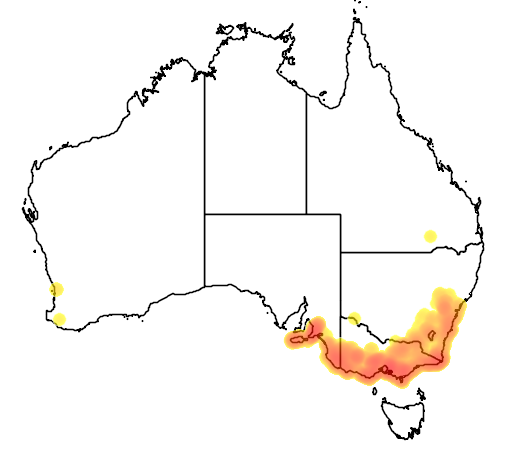Description
Common names
Prickly Tea-tree, Prickly Teatree.
Scientific names
Leptospermum continentale, Leptospermum juniperinum.
Family
Myrtaceae.
Genus
Leptospermum.
Name origin
Leptospermum, from Greek leptos, slender, and sperma, seed, referring to narrow seeds of some species. Continentale, refers to its mainland distribution as opposed to its close relative Manuka (L. scoparium), which only occurs in Tas and NZ.
Rainfall
500mm.
Growth rate
Moderate.
Growth height
1-2m.
Presence in Australia
Widespread east of the Olympic Highway.
This specie has been identified in the following Australian states: Qld, NSW, ACT, Vic, SA, WA.
Habitat
Forest or open sandy swampy places.
Habit
Upright rigid prickly shrub 1-2m high. Firm bark and narrow green leaves.
Site preference
Poorly-drained soil such as seepages. Tolerates frost and extended dry periods.
Characteristics
Very hardy. Moderate growth rate. Lifespan up to several decades.
Flowering
White, or rarely pink, Oct-Jan.
Seed collection
Any time. Seeds retained for many years, only shed after adversity such as injury, drought or fire. Collect capsules from older wood. Seeds highly viable, remaining so for many years in storage.
Propagation
From seed or tip cuttings. Smoke treatment further improves germination. Sow light scattering of seed and cover lightly. Germinates in 2-5 weeks. Capillary watering should benefit fine seed. Suitable for direct seeding into pots.
Regeneration
From seed, suckers and lignotubers. Regenerates quickly after soil disturbance.
Shade and shelter
Useful low-level cover in windbreaks, particularly on poorly drained sites.
Land protection
Useful in controlling erosion due to soil-binding fibrous roots, and for revegetating swampy areas.
Wildlife
Excellent habitat. Prickly foliage excellent refuge for small birds, particularly dense thickets. Flowers are a good pollen and nectar source for many native insects, including moths and butterflies.
Koori
Implements made from stems, including pegs for kangaroo skins, hunting spears and eel spears.
Ornamental
Attractive, particularly when planted to form dense thickets. Flowers prolifically. Prune from early age to encourage bushiness.
Other
Stems used for tea-tree fencing and for plant stakes. Used in colonial medicine.


